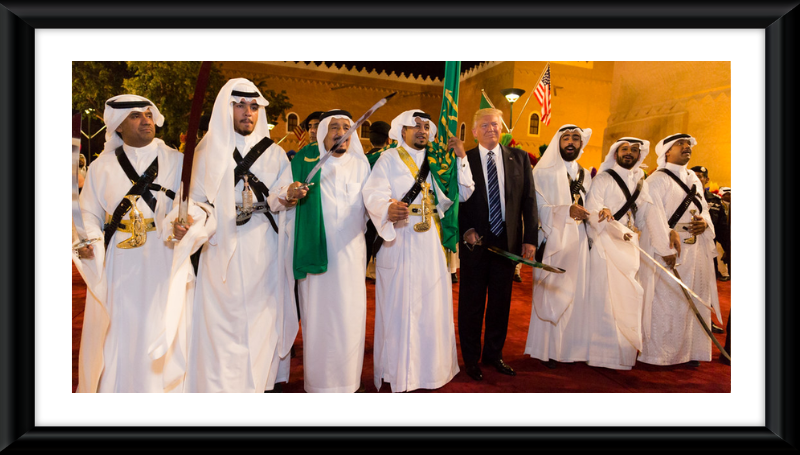Lily Lynch
Unherd, May 15, 2025
“Trump’s new Syria policy seems to put him at odds with top members of his own team.”
In a remarkable speech before a friendly audience in Riyadh on Tuesday, President Trump assailed the long history of “Western intervention” in the Middle East. He lambasted the neocons, hawks and “nation builders” who had traditionally anointed themselves arbiters of who should lead the region, all while administering democracy and human rights through occupations and shock-and-awe-style displays of spectacular violence. “The so-called nation builders,” he said, “wrecked far more nations than they built, and the interventionists were intervening in complex societies that they did not even understand themselves.” Trump also marvelled at the “gleaming skyscrapers of Riyadh and Abu Dhabi” — emphasising that the achievements of the “modern Middle East” had been entirely their own.
But the most significant part of Trump’s anti-interventionist speech, delivered on the first evening of a historic three-day trip to the Gulf, was not in its rhetoric but in policy. In a dramatic announcement, he stated that he would be ordering the “cessation of sanctions” against Syria. This, he said, would give the new government in Damascus “a chance at greatness”. From across the region, you could almost hear the collective sigh of relief.
Among the most punitive in the world, the sanctions on Syria were introduced during the long reign of the Assad family, starting in the Seventies. But the most debilitating sanctions were imposed in the last years of Bashar al-Assad’s regime, who was ousted in December by Islamist rebels led by the country’s new de facto president Ahmed al-Sharaa. Leaders with a stake in regional stability, including many assembled in Riyadh, had worried that absent sanctions relief, Syria could soon become a failed state — one that could potentially descend into full-scale sectarian civil war and even dissolution, sending more refugees towards Turkey and Europe.
In Syria, where some people haven’t received salaries for months, sanctions have strangled the economy, inhibited foreign investment, hampered the provision of humanitarian aid, and surely placed increased strain on existing fissures within society. As a result, the news boosted Syria’s beleaguered currency, with the pound strengthening against the dollar for the first time in years…..SOURCE


